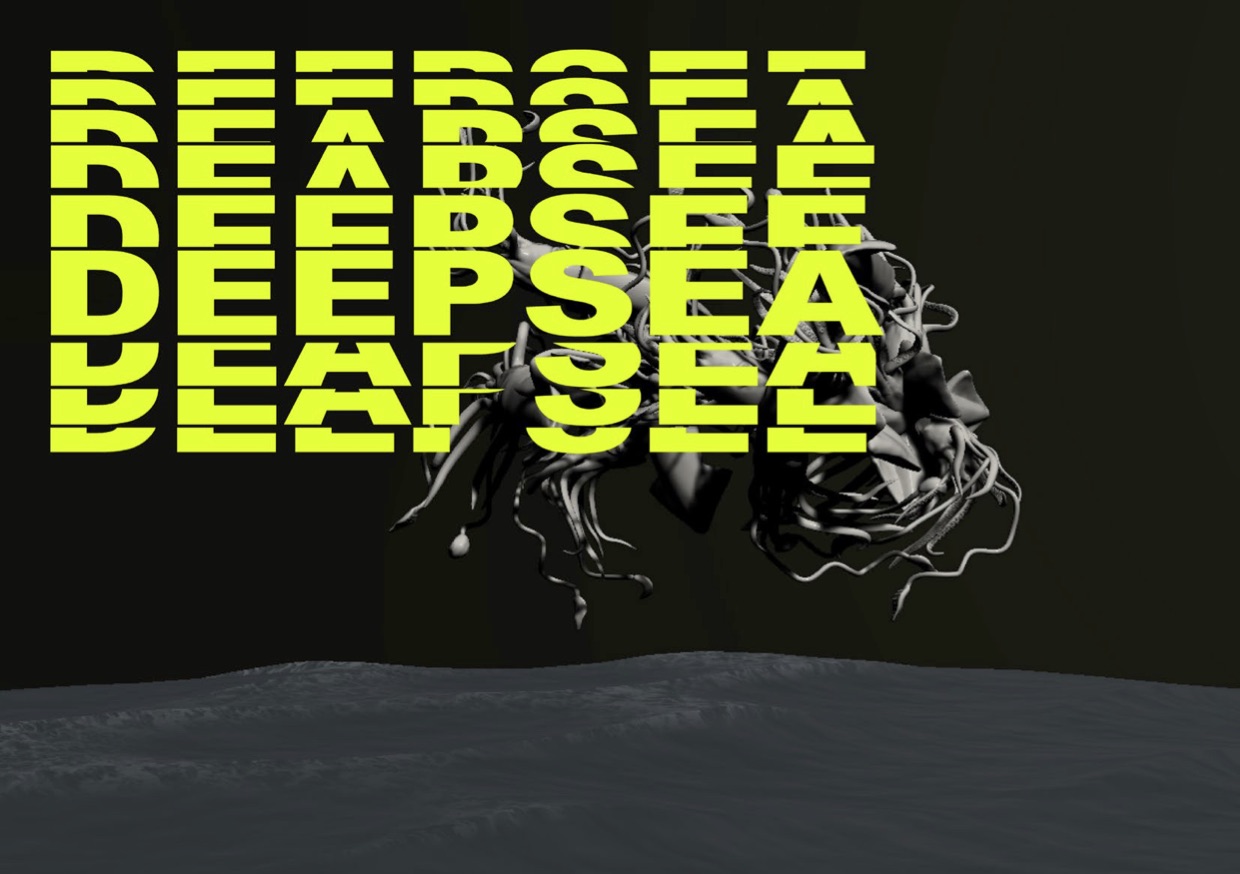Deep Sea Creations
Deep Sea
Installation
Can the deep sea contribute to hypotheses of future life on earth?
Imagine life in the deep sea, a few thousand meters below the surface: the only light sources are bioluminescent organisms, oxygen level is extremely low, and only few species can exist in such adverse living conditions. The vampire squid is one of them. This inspired Vilém Flusser to write the philosophical fiction "Vampyroteuthis Infernalis", which imagines the life world of this octopus as the ultimate "other" to the human perspective.
Flusser's ideas, and Louis Bec’s drawings reflecting them, inspired the project Deep Sea Creations: Organized by Anita Jóri, Alberto de Campo and Hannes Hoelzl, a team of UdK Berlin students - Bruno Gola, Isak Han, Kathrin Hunze, Hana Yoo, Yoonjoo Lee, Sanni Nam, Mija Healey, Cammack Lindsey, and Kohei Kimura - developed an ensemble of hypothetical deep-sea inhabitants. They form a “utopological” network of beings who negotiate behavior shared among themselves thanks to a coded collectivity. In this way, a model of autonomous, acephalous decision-making is created - all creatures have equal rights, and the negotiation processes they initiate resemble evolutionary selection processes. Christian Schmidts created their biomorphic forms based on models from biology - from viruses (Lassa) to exoskeletons (Husk, Hive) to plant and animal forms (Drop, Callus, Manta) and colonies (Nexus). The installation also comprises independent works: Spirula Stabilikea models a strange jellyfish; in Anaerobically Becoming, a chamber contains an unidentified life form one can touch; Tripod Fish is an abstraction of an existing species; Ctenoplastiphora LEDea is an electrofluorescent comb jellyfish, and Rapture and The Garden of All Spheres are virtual immersive experiences. Living in the basement of the STATE Studio, the fictional deep-sea inhabitants raise questions about the development of biodiversity and seek answers through technological hacks of evolution.
Complex behaviors, whether in feedback systems, chaotic circuits, social systems or computer programs are fascinating objects of study. The Society for Nontrivial Pursuits(S4NTP, students, alumni/ae and associates of the class for Generative / Computational Art at UdK Berlin) explores the possibility spaces of such systems. They design, build and program performance systems based on a variety of devices, sensors, electronics, and software and deploy them in extremely diverse projects, realizing installations, performances, and experiments.

